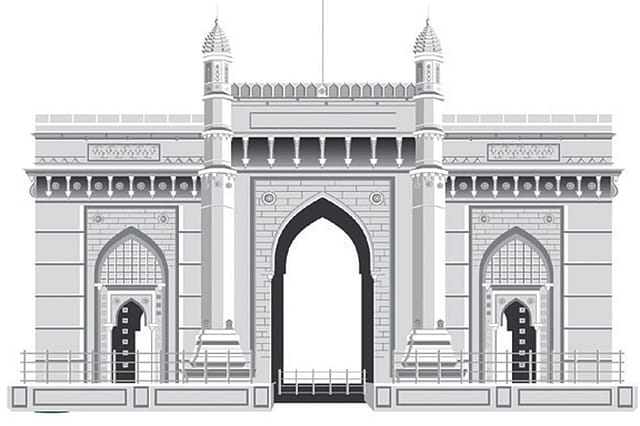A National Lockdown

SOMEONE SENT me a video showing the line outside a grocery store in California. It went out of the store, into the car park, then beyond the cars to a garden where it seemed to go on and on. 'Unending', I believe, is the word. Each person observed, approximately, prescribed social distancing. Some optimistically pushed large shopping trolleys. Here in Mumbai there's no such frenzy. The queues are small and chalk marks on pavements and roads delineate your space. Most kirana stores don't allow customers inside: you place your order when your turn comes to someone at the door and wait for your parcel.
When the lockdown started, WhatsApp was awash with promises of home delivery from grocers, vegetable outlets and chemists. Each gave multiple phone numbers for orders. The phones just rang; finally if someone did answer, it was to say, 'Sorry, we have no delivery boys.'
That was, is and will be our country's massive problem: a huge share of our services workforce is of this kind, with no permanence or security of service at the best of times. At the worst of times, as we are experiencing now, the 'casual' worker knows if he falls sick, he will have no access to medical help. At Worli Naka, one of the busiest parts of town, a crowd of men gathered together every morning: they were masons or carpenters, waiting to be picked up by a building contractor for a day's work. Along the pavement, you could see other aspects of the informal sector—the vada pav stall, the bhelpuri wala, the old lady sitting with a plastic tub full of hard-boiled eggs (a sure sign there was a liquor den in the neighbourhood). The next street, with a formal name so long no one could remember, instead became every morning a bhaaji gali, each vendor with a basketful of vegetables to be sold the same day. In a lockdown, where would all these people go but home?
2026 Forecast
09 Jan 2026 - Vol 04 | Issue 53
What to read and watch this year
Could the reverse migration we witnessed from our cities have been prevented? Moot point. However, it could have been, and should have been, anticipated. The country was given three-and-a-half hours notice for a 21-day lockdown; New Zealand gave 48 hours. Here, even chief ministers learnt of the lockdown from the Prime Minister's television address. If, instead, they had been given confidential notice of a week, they would have had time to put in place an emergency infrastructure with sports stadia, railway stations, school premises and unoccupied office buildings as temporary shelters. They could have made arrangements for food supply and basic medical help for the daily wage earner. They could have roped in private hospitals as test centres and isolation wards.
Instead, every state was sent scrambling to get all this done without advance notice. Sadly, consultations, forward planning, thinking things through is not this Government's style. Instead, it follows the dictum: Act first, think later.
ALL OF US heard stories of coronavirus positive patients escaping from their isolation rooms in Kasturba Hospital. Everyone's reaction was of horror: 'How could they? How irresponsible!' And then one of the escapees sent photographs of Kasturba's interiors. 'Unkempt' would be a polite word, but the toilets were much worse. A healthy person would pick up an infection in no time.
We know our health services are abysmally funded. India spent a mere 1.28 per cent of its GDP in 2017-2018 and 1.02 per cent the previous year. (The US spends the most at 18 per cent.) The 2020 allocation is below 1.5 per cent. The slight increase does not even cover inflation.
Lack of money would obviously have an impact on the equipment and medical facilities in government hospitals. But surely, basic cleanliness does not need big money? Step into any office in the country and you will instantly know it's a government office because of a general slovenliness in the air. Yet, IAS officers by and large are clever people; doctors in government hospitals are as qualified and competent as their private counterparts. Why does the mindset change when you put up a government signboard over a building entrance? Figure that out and we will see a sea change without an extra rupee spent.
AS PEOPLE EXCHANGE WhatsApp messages or have long phone conversations during the national lockdown, the one subject most discussed is what happens post-lockdown, post-Covid-19? Will we find that we can do much of our work from home? Will people in corporate offices discover that a lot of their normal business travel is unnecessary? Will they continue with videoconferencing as a time, money and energy-saving alternative to how they have functioned till now? Will people appreciate and be more generous with their domestic help, now that they have had to do much of the housework themselves? Will we who live in comfortable apartments in a crowded city realise and be grateful for how very lucky and privileged we are?
